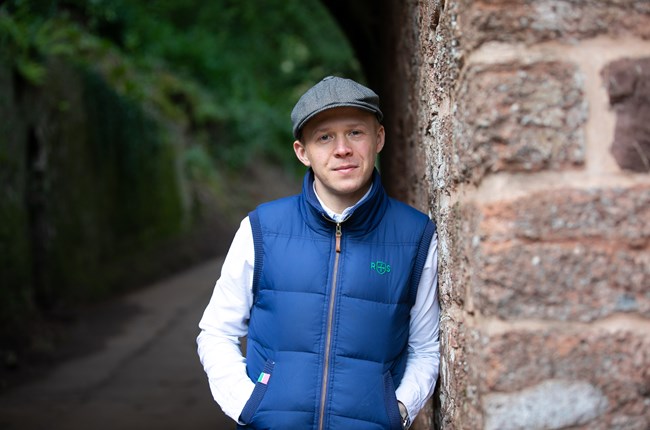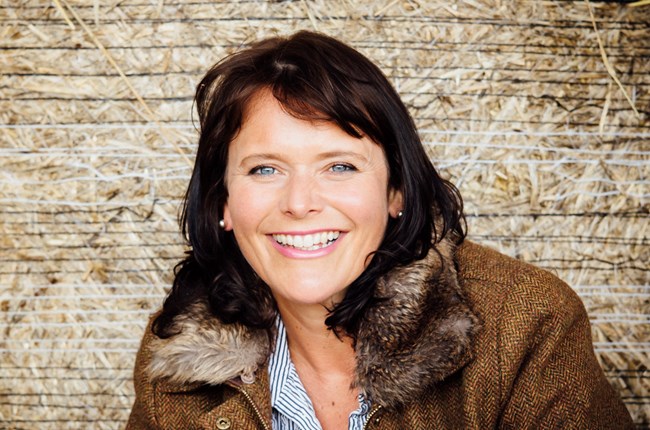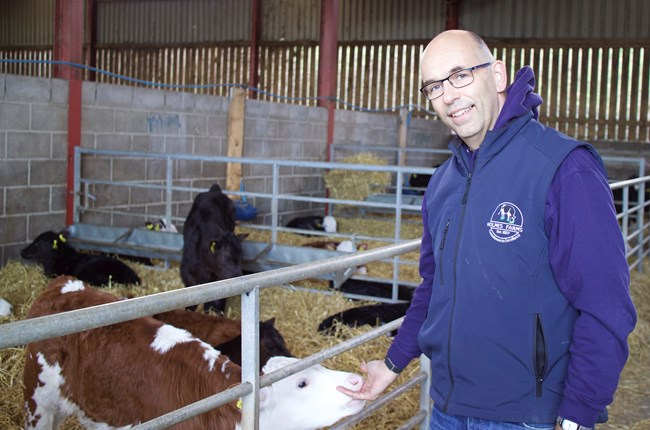
Talking can help
Ellie Sturrock believes talking more is vital for improving mental health in the farming community. As both an accredited talking therapies practitioner and a Dorset sheep farmer, Ellie has a unique understanding of mental wellbeing among those in agriculture, gained from over 25 years working in mental health care.
Ellie Sturrock is the West Dorset Area Lead for Steps2Wellbeing, a free NHS talking therapies service for anxiety and depression. The talking therapies offered include counselling and cognitive behavioural therapy (CBT). She is also a sheep farmer, running a low-input farm and camping business alongside her husband.
“One of the biggest threats to mental health in farming is uncertainty,” explains Ellie. “While the source of uncertainty might vary, it’s common across all sectors of the industry and can be a substantial form of stress. From politics, compliance and trade deals to the weather and disease, so much in farming feels out of your control, and this can make life difficult.
“With the uptake of new technologies, we are seeing fewer people on farms than ever before making it an increasingly lonely career. Couple this with financial challenges, it’s no wonder we are seeing such a high incidence of poor mental health in the industry.”
Ellie also believes the Covid-19 pandemic had a negative impact on farmers’ mental health. “As a community already isolated, lockdown prevented many of the social activities that provide human connection and time away from the farm. Without this opportunity to talk and catch up with family and friends, farmers became even more isolated. Talking and sharing problems with others is vital to good mental wellbeing and without this, we can quickly start running into problems.”
For some, talking with friends or family can be enough. But for those looking for more support, talking therapy offers another option. The therapies provided by Steps2Wellbeing include counselling, online courses, cognitive behavioural therapy (CBT) and guided self-help.
The service supports those with common mental wellbeing issues such as depression and anxiety, explains Ellie. “People don’t need to come for talking therapies with a clear diagnosis. If you’re feeling preoccupied with worry, overwhelmed, paralysed by endless to-do lists, down in the dumps, unsociable, drinking too much or overeating to feel better, not sleeping well, or snapping at people and have been for over 2 weeks, then it may be worth having an assessment. It will only take 45 minutes of your time and you can do it from the tractor cab, farm kitchen or in person.”
While the stigma around poor mental health in farming is slowly changing, negative perceptions of mental illness can still prevent those in the farming community from seeking help. Ellie also points to geographical isolation and anxiety around taking time away from the farm as reasons why farmers don’t access mental health services.
“The rural location of farms, combined with time constraints, means some farmers are reluctant to engage with talking therapies. However, it is possible to access these services over the phone or video as well as in person. This could be in the tractor or wherever they feel most comfortable.
“The most important thing is recognising when you, or someone you know, needs extra support and knowing what options are available.”
Spreading the word about the benefits of talking and talking therapies is important to Ellie. “A key part of my job is engaging with rural communities. We’ve been linking up with FCN and going to farmer breakfasts to let people know we are out there but also to reduce the stigma around talking about mental health. As a team, we are also working hard to ensure we understand the challenges farmers face so we can provide the best support possible.”
For more information about the Dorset Steps2Wellbeing service visit: https://www.steps2wellbeing.co.uk
For more information about NHS talking therapy services in other counties visit:


